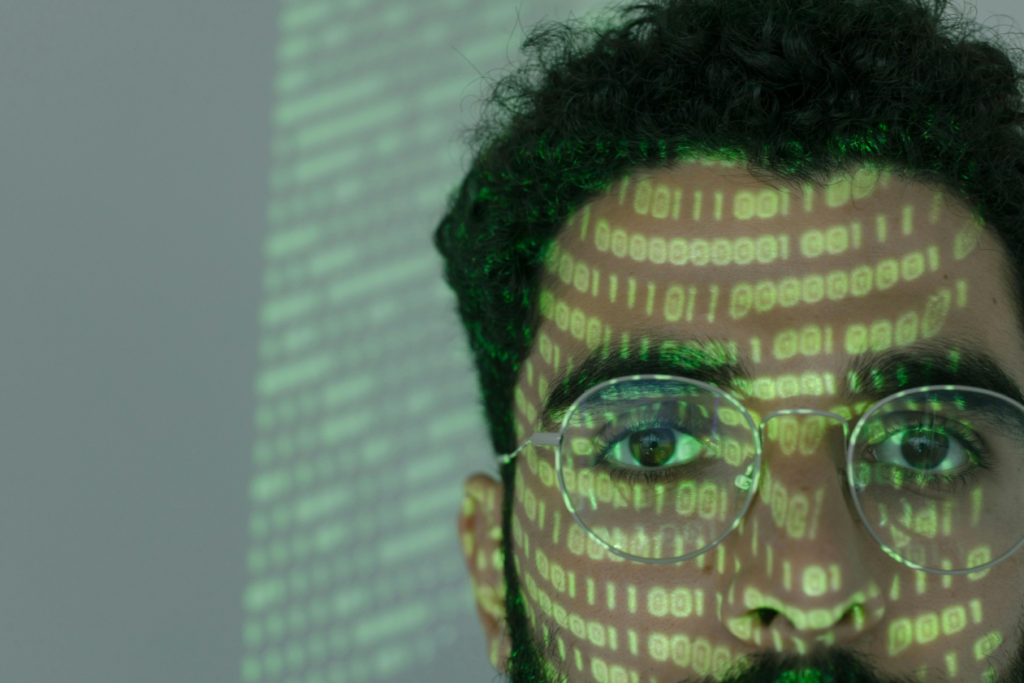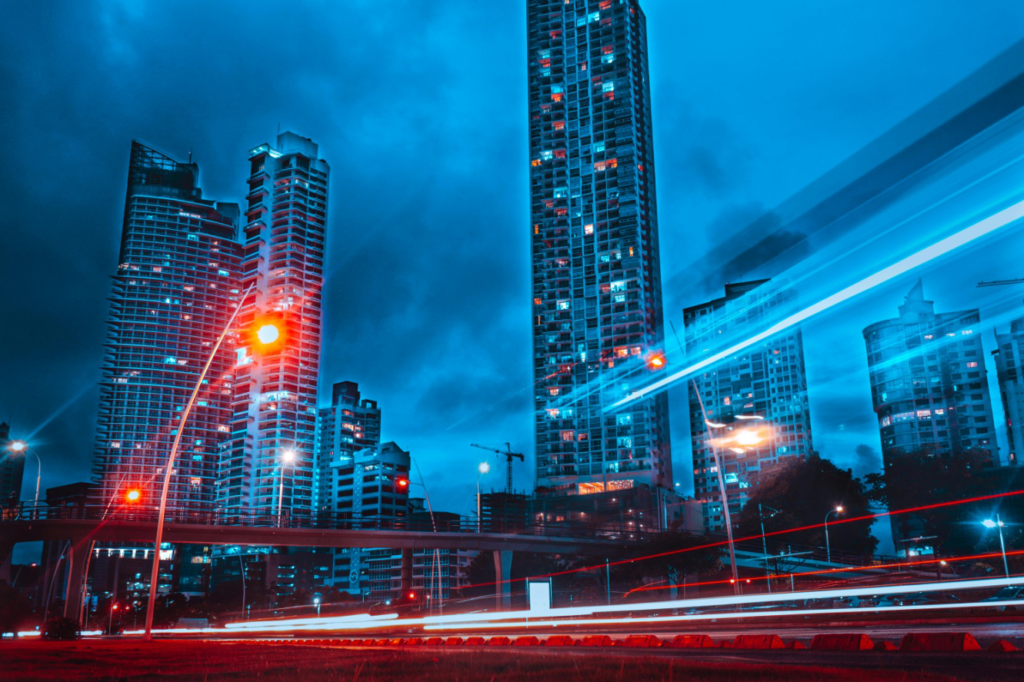What if our cities could think and respond to our needs, adjusting traffic flow to prevent jams or managing energy consumption to reduce waste? This isn’t a distant dream—it’s a reality that’s rapidly taking shape with the integration of artificial intelligence.
Right now, over 55% of the world’s population lives in urban areas, a number projected to rise sharply over the next few decades. This means that cities will have to adapt and operate more intelligently to handle growing demand. The key to meeting this challenge lies in smart cities: urban spaces that leverage artificial intelligence to function more efficiently, sustainably, and effectively for all residents.
AI Report Central brings you the latest on artificial intelligence, delivering insights and news that keep you informed about the impact of AI on computing and technology.
In this blog, we’ll explore how AI is transforming urban life, from optimizing traffic systems and enhancing public safety to streamlining energy use and advancing city services. The latest articles on artificial intelligence reveal these advances are already beginning to redefine the urban experience, setting the stage for smarter, more connected cities.
How Smart Cities Use AI to Optimize Traffic Flow
Traffic congestion is a universal issue in urban areas, with drivers spending countless hours stuck in slow-moving lanes. But what if traffic could be managed in real-time, with signals and lights adjusting based on current conditions? By analyzing data from cameras, sensors, and even social media, AI-powered systems can predict traffic flows and adjust accordingly.
- Real-Time Adjustments: AI can control traffic lights dynamically, reducing stop times and enabling smooth vehicle flow based on live data.
- Public Transit Optimization: With AI, public transportation can become more efficient, with routes dynamically adjusted based on real-time rider demand.
- Emergency Vehicle Priority: In smart cities, AI detects emergency vehicles and reroutes traffic to clear a path, improving response times and safety.
For businesses and city managers, the impact of AI on computing and transportation means smoother logistics and less congestion. These benefits offer residents reduced travel time and cleaner air due to decreased emissions.
Enhancing Energy Efficiency and Sustainability in Smart Cities
Energy consumption is another critical focus area in smart cities. Traditional urban areas consume massive amounts of energy, often inefficiently. However, artificial intelligence enables cities to track energy use in real-time, reducing waste and improving sustainability.
- Smart Grids: These AI-driven systems monitor electricity demand, instantly balancing supply and adjusting prices based on demand.
- Efficient Building Management: AI can regulate heating, cooling, and lighting in buildings based on occupancy and weather data, leading to significant energy savings.
- Renewable Integration: AI can help manage the balance between renewable and traditional energy sources, predicting energy production from renewables and adjusting usage patterns to maximize their use.
This focus on AI-supported energy solutions addresses a pressing need for eco-friendly practices while reducing costs for cities and residents alike. Implementing AI in small businesses within these cities can mean reduced operational costs and a commitment to sustainability.
Improving Public Safety and Security with AI

Public safety is paramount for any city. AI technology offers valuable tools to enhance safety and security by detecting and responding to issues in real-time.
- Predictive Policing: AI algorithms analyzehistorical crime data to identify patterns and potential hotspots, allowing law enforcement to deploy resources more effectively.
- Automated Surveillance: Smart cameras equipped with AI detect unusual behavior or potential threats, alerting authorities instantly for faster response.
- Disaster Response: AI analyzes data from sensors and satellites to predict natural disasters, offering cities critical time to prepare and respond effectively.
These advancements reduce the burden on human responders and help protect communities more efficiently. The latest on artificial intelligence shows just how transformative these tools can be in reducing crime rates and enhancing emergency response capabilities.
Revolutionizing Waste Management and Sanitation
Efficient waste management is essential in any city but challenging to maintain at scale. AI offers solutions that enable smart waste management, making disposal and recycling more efficient and less costly.
- Optimized Collection Routes: AI can analyze collection data to determine the best routes and times for garbage collection, reducing fuel use and manpower costs.
- Smart Bins: AI-powered sensors in waste bins can notify collectors when they’re full, helping maintain cleanliness without unnecessary pickups.
- Recycling Automation: AI is also being used to improve recycling processes by identifying and sorting recyclables more accurately than humans.
These innovations address waste challenges proactively, keeping cities cleaner and contributing to sustainability goals by encouraging recycling.
Enhancing Healthcare and Social Services Through AI
AI doesn’t only benefit city infrastructure; it can also significantly improve access to healthcare and social services.
- Telemedicine and Remote Monitoring: In smart cities, AI enables telemedicine by collecting and analyzing patient data for remote diagnosis, ensuring healthcare access for all, including those in underserved areas.
- Automated Health Monitoring: Wearable devices and sensors track health metrics in real-time, alerting users and healthcare providers about potential issues before they escalate.
- Predictive Analysis for Health Trends: AI can also monitor public health trends, identifying potential outbreaks and enabling cities to respond effectively.
By integrating AI into healthcare, smart cities can help keep residents healthier, reduce strain on hospitals, and provide early interventions.
The Smart City Future: What Lies Ahead
As AI technology evolves, so will the possibilities for smart cities. From environmental monitoring to efficient utility management, AI’s capacity for data analysis and prediction will likely expand into more areas of urban life.
But what are the challenges that come with this progress? Privacy concerns, for example, are a major consideration, as AI relies on data collection and surveillance. Balancing technology use with privacy protections will be essential. Additionally, cities will need to address technological inequality to ensure that all residents benefit from these advancements, regardless of their socioeconomic status.

Ready to Dive Deeper into the Future of AI-Powered Cities?
Curious about the impact of AI on computing in urban spaces or how implementing AI in small businesses can drive growth within these smart cities? At AI Report Central, we’re committed to bringing you the latest articles on artificial intelligence, covering topics from the latest in generative AI to trends shaping the future of urban life. Subscribe to our newsletter to stay updated with the latest AI technology news and developments in smart cities.
AI-powered smart cities are no longer a concept of tomorrow; they are here today, transforming our urban experiences and lifestyles in ways we couldn’t have imagined. With AI Report Central, you’ll stay informed about these advancements, equipping you with the insights needed to make informed decisions in an AI-driven world.



















